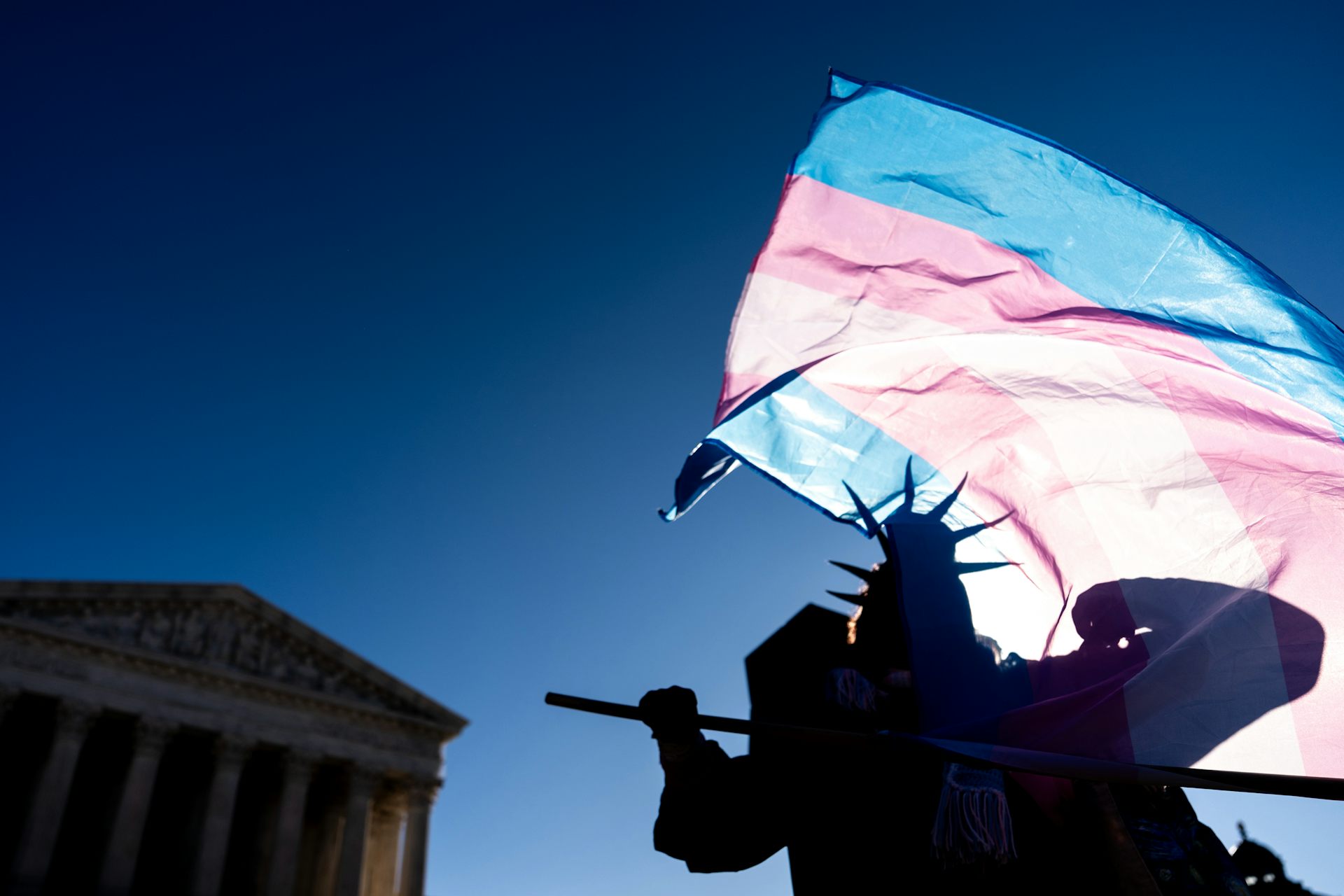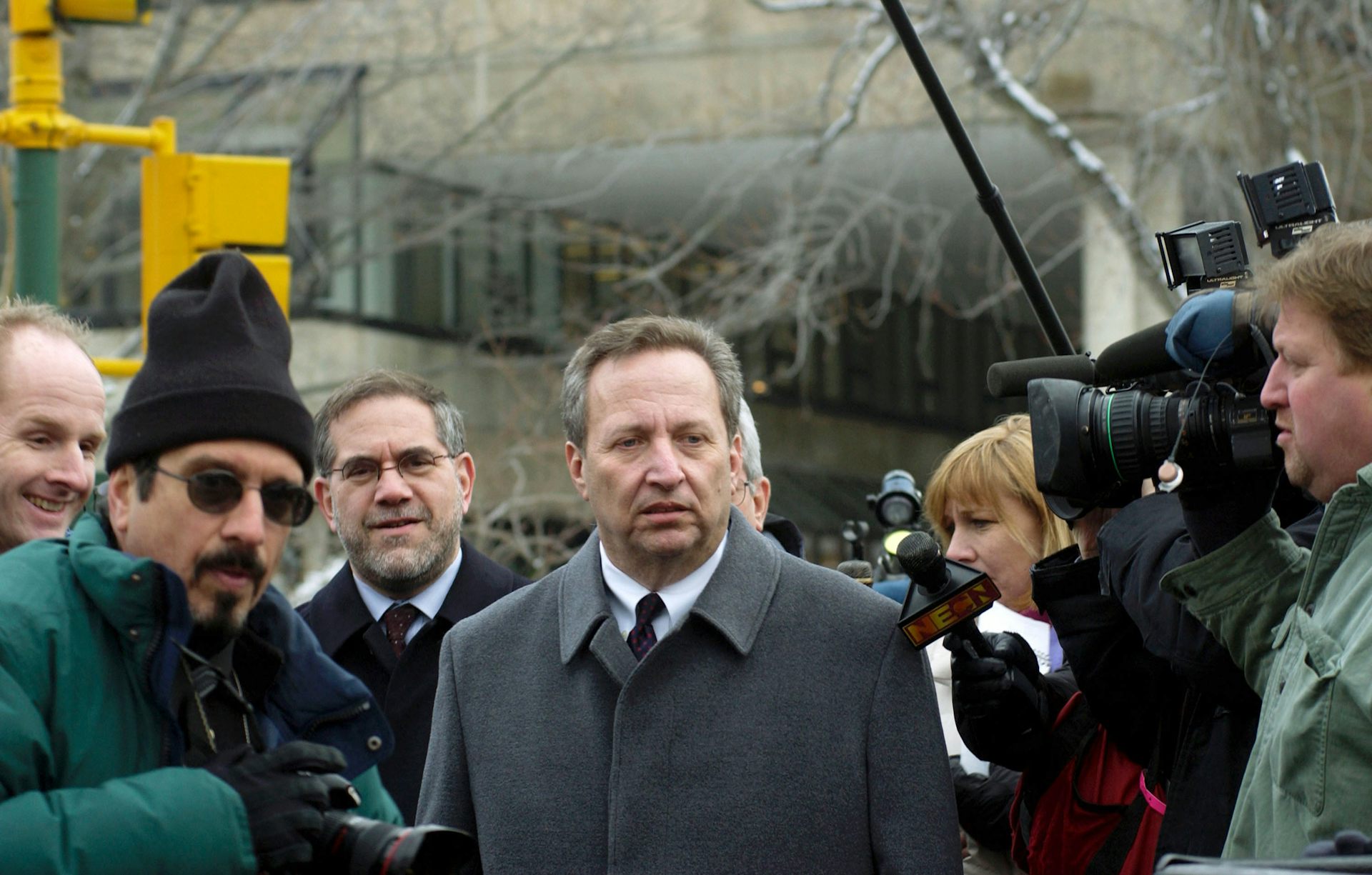Why this conservative bastion chose a liberal evangelical icon for its commencement speech
Although the choice of liberal icon Jimmy Carter as commencement speaker at Liberty University might be surprising, an expert explains why this fits in with the dream of conservative schools.
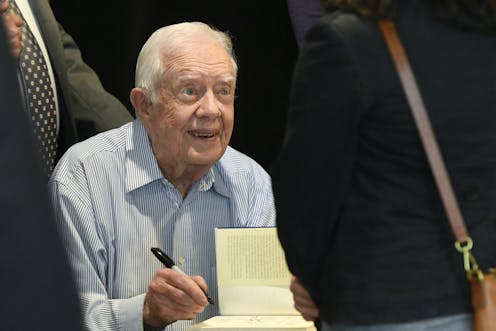
In a move that might surprise some, the conservative evangelical Liberty University has chosen the liberal evangelical icon Jimmy Carter to give its commencement speech this year. Based on my research into the history of evangelical higher education, however, the move makes perfect sense: The long-standing dream of conservative evangelical universities like Liberty is to be more than a niche school.
The GOP love affair with Liberty
Liberty’s roots go back to the fundamentalist movement, a conservative interdenominational evangelical protest that began in the 1920s. In that era, fundamentalists hoped to cleanse their churches of liberalism and public schools of evolution. In recent years, many former fundamentalists prefer other labels, such as “conservative evangelical” or simply “Christian.” Liberty has often taken the lead as the movement’s public face.
Conservative politicians have rushed to flatter Liberty’s conservative vision. In 2017, for example, President Trump offered a rousing commencement speech to his evangelical fans at Liberty. As they ventured out of Lynchburg, Virginia, Trump told Liberty grads:
“I know that each of you will be a warrior for the truth, will be a warrior for our country and for your family. I know that each of you will do what is right, not what is the easy way, and that you will be true to yourself and your country and your beliefs.”
It wasn’t only President Trump who told the Liberty community what it wanted to hear. In the run-up to the 2016 elections, all the major GOP candidates made an appearance at Liberty. Sen. Ted Cruz announced his candidacy there. Gov. Jeb Bush gave the 2015 commencement speech, praising Liberty’s “seven thousand acres of shared conviction.”
Indeed, this love affair between Liberty University and GOP presidential hopefuls has a long history. Back in 1980, candidate Ronald Reagan traveled to Lynchburg to preach to the conservative choir. The president of Liberty at the time told his campus Reagan represented the “principles which have made America great.”
The fundamentalist vision for higher education
Given this long, close relationship between conservative politicians and this conservative religious school, why would today’s leaders invite President Jimmy Carter?
Put simply, the dream of Liberty and its family of institutions has always been bigger than the GOP. For almost a century now, as I describe in my recent book, conservative evangelical academics have yearned to do more than shelter students from secular academic trends. They have hoped to reclaim their spot as the academic trend-makers. They have dreamed of creating a conservative alternative network of religious colleges and universities that could reclaim its role as the brains and conscience of the entire nation.
Almost a hundred years ago, Dean Lowell Coate of Marion College in Indiana pleaded with his fellow conservative evangelical academics to forge a new type of college.
Mainstream institutions, Coate lamented in August 1923 in the pages of the Moody Bible Institute Monthly, had fallen prey to the siren song of “evolution, destructive criticism, and liberalism.” Leading mainstream colleges, Coate warned, had foolishly abandoned Christian thinking in favor of new fads in science and scholarship. They had adopted uncritically a new, liberal approach to biblical hermeneutics.
What America needed, Coate believed, was a new, superior system of higher education, one that would “ignore the whole worldly system, and organize courses independent of the world’s stereotyped curricula, engage the strongest conservative scholarship in America, raise the educational standard above the present unchristian philosophy, stablish [sic] it upon ‘the faith once for all delivered to the saints,’ and then challenge the world to meet the new scholarship.”
The Harvard of the Christian world
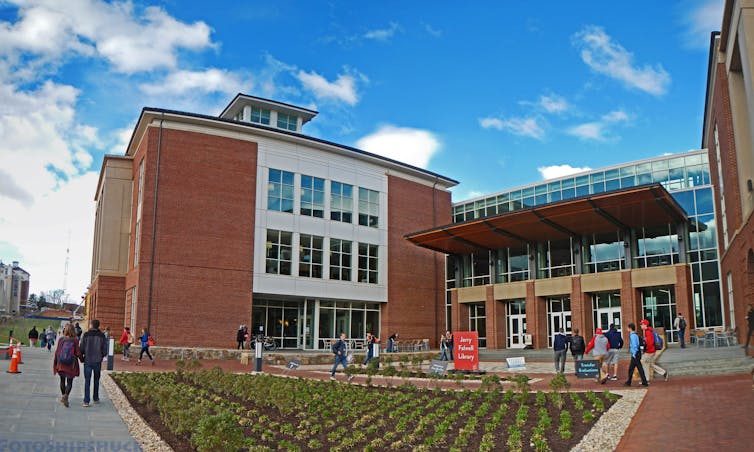
Long before Jerry Falwell Sr. opened Lynchburg Baptist College in 1971 – today’s Liberty University – evangelical academics heeded Coate’s call. Institutions such as Wheaton College in Illinois, Bob Jones University in South Carolina, Biola University in California, Moody Bible Institute in Chicago and many others created a new network of conservative religious colleges and universities.
As I found in my research, the fundamentalist college network wanted to do more than just protect students from trends in secular schools. It wanted to create a better system of higher education, without being secular or skeptical. It wanted to be more than the religious wing of one political party; it planned to be the religious voice of the nation.
For instance, when fundamentalists took over the struggling Des Moines University in 1927, leaders bragged that the revived school would be more than just a fundamentalist hothouse. William Bell Riley – a Minneapolis leader who hoped to bring all American fundamentalists under his purview – praised Des Moines in the December 1927 issue of his Christian Fundamentalist magazine as a “strictly fundamentalist University” that welcomed students of all backgrounds, including Catholic and Jewish students.
Des Moines University soon gave up its fundamentalist ambitions, but other fundamentalist colleges thrived. The goal was always the same: to create a secure fundamentalist home for college students, while still earning the respect of the wider world.
By the time Liberty University joined the family, the impulse was even stronger. As Liberty President Pierre Guillermin explained to a journalist for the Liberty Baptist College newsletter in 1982, the goal of his new institution was to be “the Notre Dame of the Christian world athletically and the Harvard of the Christian world academically.”
Getting closer to its dream?
Back then, Guillermin’s boast seemed hard to believe. These days, however, things are different. With over $2 billion in net assets earned from lucrative online programs, today’s President Jerry Falwell Jr. has chosen to invest in traditional brick-and-mortar campus facilities.
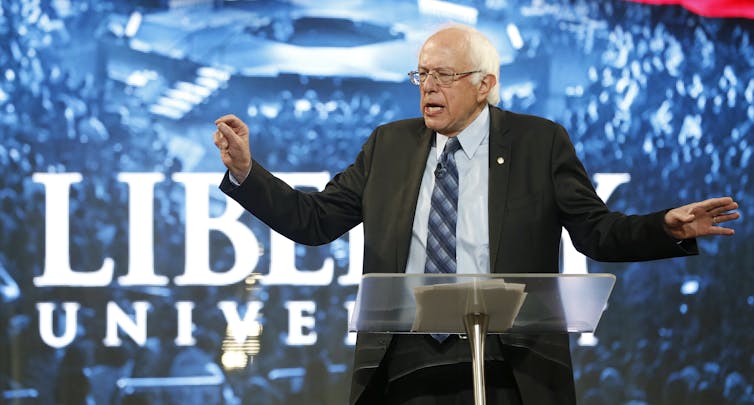
He has encouraged faculty to write for broad public audiences, recruited top athletes, and lured celebrity speakers of all political backgrounds. For example, when Liberty’s English professor Karen Swallow Prior regularly contributes to The Atlantic magazine or when Liberty beats Baylor in football or when Sen. Bernie Sanders agrees to speak on campus, it seems as if Liberty’s dream is that much closer to reality. The vision has always been to be more than just a conservative safe space. The goal is to be America’s Christian university.
When President Carter – long the personification of liberal evangelical politics – joins President Trump in sending Liberty graduates off into the world, evangelical higher education moves nearer to its dearest wish. By hosting liberal presidents as well as conservatives, Liberty can claim to be a real leader in religion, education and politics, not just an angry collection of people with right-wing beliefs.
Adam Laats received funding from Spencer Foundation.
Read These Next
Kansas revoked transgender people’s IDs overnight – researchers anticipate cascading health and soci
With invalid driver’s licenses and birth certificates, transgender people are at risk for more than…
Massive US attacks on Iran unlikely to produce regime change in Tehran
President Trump has appealed to Iranians to topple their government, but a popular uprising is unlikely…
Bad Bunny says reggaeton is Puerto Rican, but it was born in Panama
Emerging from a swirl of sonic influences, reggaeton began as Panamanian protest music long before Puerto…


